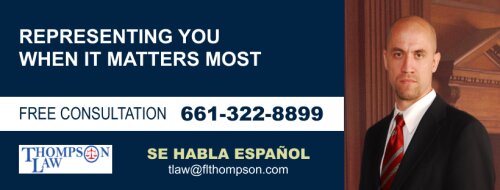Best Child Abuse Lawyers in Vermont
Share your needs with us, get contacted by law firms.
Free. Takes 2 min.
Free Guide to Hiring a Family Lawyer
Or refine your search by selecting a city:
List of the best lawyers in Vermont, United States
About Child Abuse Law in Vermont, United States
Child abuse is a serious issue in Vermont and throughout the United States. In Vermont, child abuse is defined as any act or failure to act by a parent or caregiver that results in physical, emotional, or sexual harm to a child, or puts the child at significant risk of harm. Vermont has strict laws designed to protect children and punish those who engage in abusive behaviors. These laws also place a strong emphasis on reporting suspected abuse and intervening swiftly to ensure the safety and well-being of children.
Why You May Need a Lawyer
There are several reasons why someone might need legal assistance when dealing with a child abuse matter in Vermont. Here are some common situations:
- If you are being investigated for or accused of child abuse, having a lawyer can ensure your rights are protected and you receive a fair process.
- If you are a parent or guardian seeking to protect a child from suspected abuse, a lawyer can help you navigate the legal process, obtain protective orders, or work with child protective services.
- If you are a mandated reporter, such as a teacher or healthcare professional, and are unsure of the legal requirements or protections when reporting suspected abuse.
- During custody disputes where allegations of child abuse may arise and impact parenting rights.
- If you are involved in foster care or adoption proceedings and concerns about abuse have surfaced.
Seeking legal counsel can clarify your obligations and rights, help you understand the legal system, and offer guidance during what is often a stressful and emotional time.
Local Laws Overview
Vermont’s child abuse laws are governed mainly by Vermont Statutes Title 33, which sets clear definitions, mandates for reporting, and outlines investigation procedures. Key aspects include:
- Child abuse includes physical, emotional, and sexual abuse, as well as neglect and exploitation.
- Mandated reporters (such as educators, healthcare providers, and certain other professionals) are legally required to report suspected abuse to the Department for Children and Families (DCF).
- Failure to report suspected abuse can result in civil and criminal penalties.
- Investigations are generally conducted by DCF, sometimes in cooperation with law enforcement.
- Protective measures available include emergency custody orders and restraining orders to ensure child safety.
- Abuse convictions can result in criminal charges and loss of parental rights.
Understanding the specifics of Vermont’s statutes, as well as your rights and responsibilities, is essential if you are involved in a child abuse case.
Frequently Asked Questions
What is considered child abuse under Vermont law?
Child abuse in Vermont includes physical injury, emotional maltreatment, sexual abuse or exploitation, and neglect that harms or threatens a child's well-being.
Who is required to report child abuse in Vermont?
Mandated reporters include educators, medical professionals, law enforcement officers, social workers, and many others who regularly work with children.
How do I report suspected child abuse in Vermont?
Reports can be made to the Vermont Department for Children and Families, Family Services Division, which can be reached by phone 24 hours a day.
What happens after a child abuse report is made?
DCF will review the report, may contact the reporter for more information, and, if warranted, will begin an investigation to determine if abuse has occurred.
Can someone be prosecuted for failing to report child abuse?
Yes. Vermont law prescribes penalties for mandated reporters who fail to promptly report suspected child abuse, including possible fines.
What rights do parents have if accused of child abuse?
Parents have the right to legal representation, to be notified of allegations, to participate in court proceedings, and to challenge evidence and decisions.
What are the penalties for committing child abuse in Vermont?
Penalties range from criminal charges, loss of custody, termination of parental rights, to fines and imprisonment, depending on severity and circumstances.
Can past instances of abuse be reported?
Yes. There is no time limit for reporting child abuse, especially if the victim is still at risk or new evidence comes to light.
If a case is unfounded, will it affect my record?
If DCF determines an abuse claim is unfounded, it should not remain on your record. However, records of investigations are kept confidential.
What help is available for victims of child abuse?
Victims can access medical care, counseling, advocacy services, legal assistance, and protective measures through state agencies and nonprofit organizations in Vermont.
Additional Resources
Several agencies and organizations in Vermont support individuals involved in child abuse cases:
- Vermont Department for Children and Families (DCF) - Family Services Division: Oversees reporting, investigation, and intervention in child abuse cases.
- Vermont Children's Alliance: Coordinates services for victims through Child Advocacy Centers.
- Vermont Legal Aid: Provides legal representation and advice for families and children.
- Vermont Network Against Domestic and Sexual Violence: Offers support, advocacy, and referrals for abuse victims.
- National Child Abuse Hotline: Crisis counseling and resources for abuse situations.
Contacting these resources can provide guidance, support, and direct assistance based on your specific needs.
Next Steps
If you are dealing with a child abuse situation in Vermont, consider these important steps:
- If a child is in immediate danger, call 911.
- Report suspected abuse to the Vermont DCF as soon as possible.
- Consult with a qualified attorney experienced in Vermont child abuse law to understand your rights, obligations, and potential next steps.
- Document any evidence or relevant information, including dates, conversations, and physical evidence.
- Take care of yourself and your family by seeking support from counselors or advocacy groups.
Obtaining legal advice early can help protect your family's interests, ensure the child's safety, and enable a clearer understanding of the legal process in Vermont.
Lawzana helps you find the best lawyers and law firms in Vermont through a curated and pre-screened list of qualified legal professionals. Our platform offers rankings and detailed profiles of attorneys and law firms, allowing you to compare based on practice areas, including Child Abuse, experience, and client feedback.
Each profile includes a description of the firm's areas of practice, client reviews, team members and partners, year of establishment, spoken languages, office locations, contact information, social media presence, and any published articles or resources. Most firms on our platform speak English and are experienced in both local and international legal matters.
Get a quote from top-rated law firms in Vermont, United States — quickly, securely, and without unnecessary hassle.
Disclaimer:
The information provided on this page is for general informational purposes only and does not constitute legal advice. While we strive to ensure the accuracy and relevance of the content, legal information may change over time, and interpretations of the law can vary. You should always consult with a qualified legal professional for advice specific to your situation.
We disclaim all liability for actions taken or not taken based on the content of this page. If you believe any information is incorrect or outdated, please contact us, and we will review and update it where appropriate.
Browse child abuse law firms by city in Vermont
Refine your search by selecting a city.











